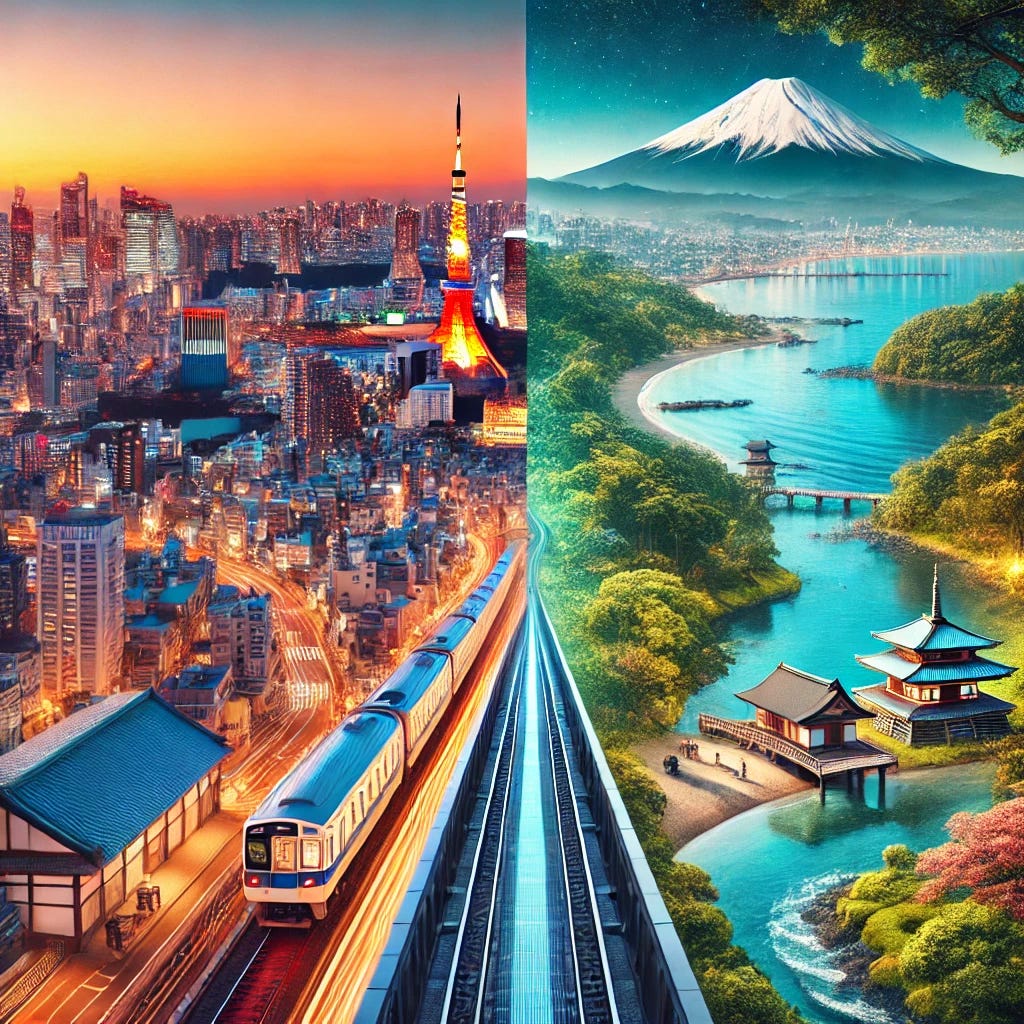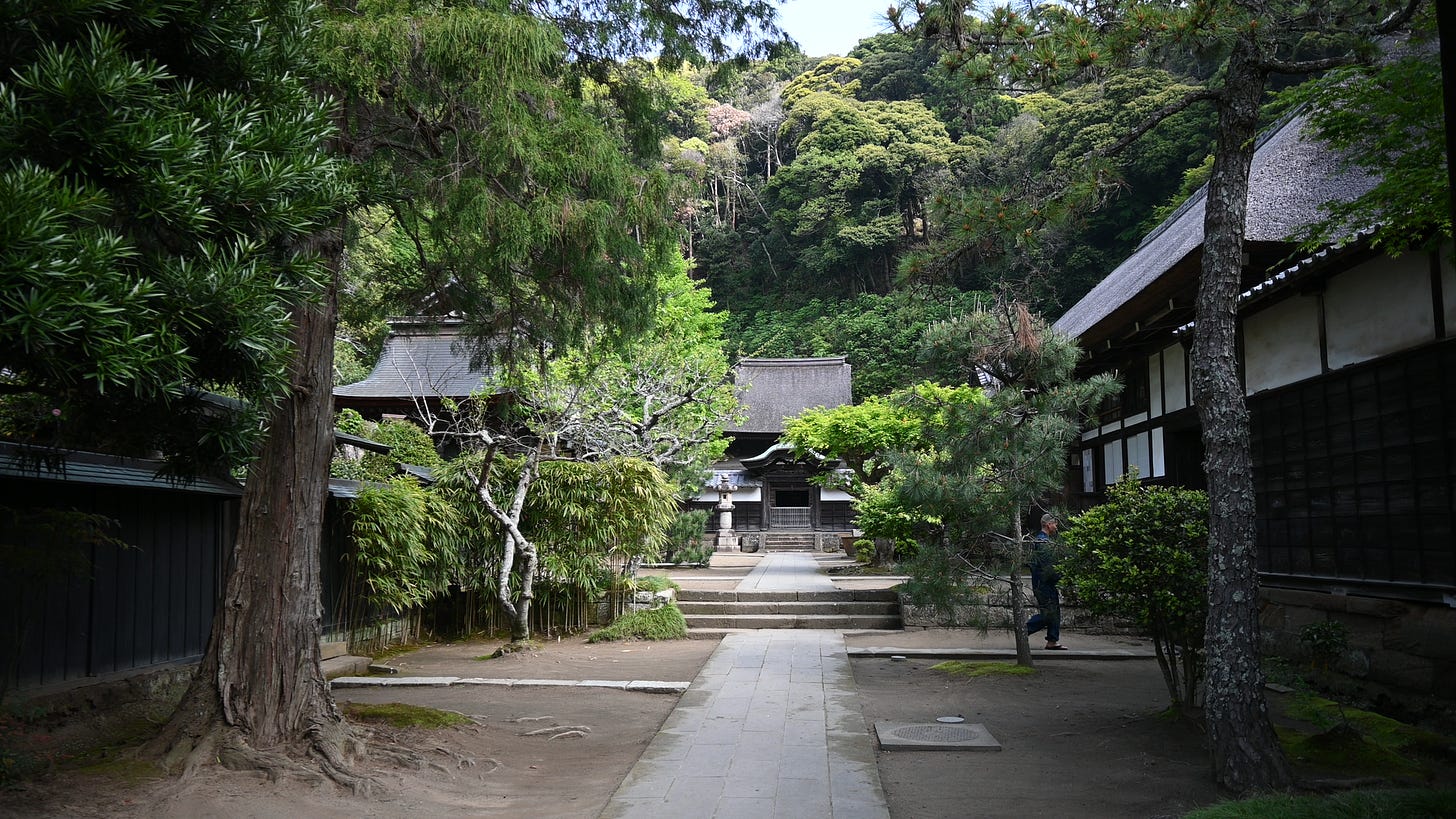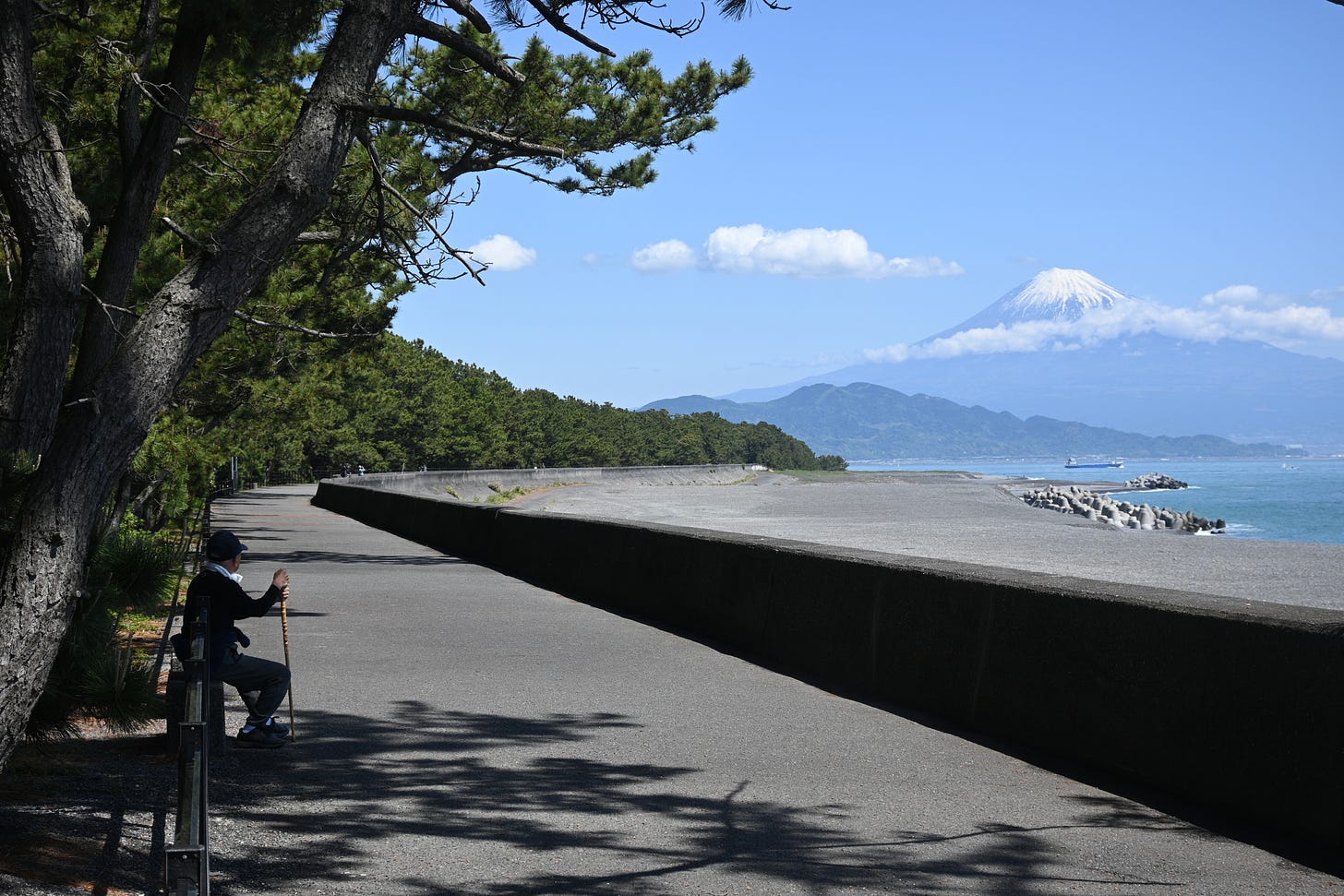If you're someone who lives for the buzz of city life, relishes trying out new restaurants, and loves diving into diverse scenes—whether it's futuristic, quirky, or downright bizarre—then Tokyo might feel like a dream come true. However, if you know me, you'll quickly realize I'm not your typical city enthusiast. While I value variety and enjoy a night out as much as the next person, I prioritize quality over quantity. I'd rather embark on a serene mountain hike or an impromptu adventure than spend hours navigating overcrowded nightclubs or hopping between bars.
After spending about six weeks in the heart of Tokyo, I found myself craving a change of scenery. Tokyo undeniably boasts a rich culture, diverse subcultures, and endless entertainment. But for me, the hustle and bustle and the distinctively urban gray aesthetics started to wear thin.
While I can certainly navigate city life with ease and have amassed a collection of unique experiences in Tokyo, if I were to return to Japan as a nomad, I'd likely opt for smaller, more compact cities as bases for day trips, offering easier access to nature.
In this post, I'll delve into what I believe are some of the pros and cons of choosing Tokyo as a base for a nomadic lifestyle. Additionally, I'll share my perspective on why venturing beyond Tokyo's city limits to explore the diverse landscapes and rich culture elsewhere in Japan can be incredibly rewarding. While Tokyo has its undeniable allure, nomads seeking a more balanced experience might find other destinations more appealing. Finally, I'll also highlight some easy day trips from Tokyo for those already in the city but craving a change of scenery.
Pros and cons of Tokyo as a nomad
Tokyo is amazing for people who enjoy solitary experiences and might be interested in underground scenes and subcultures. For individuals new to Japanese culture, other cities might offer a more approachable experience with greater access to nature and more scenic surroundings.
Pros:
Diverse culture and subcultures: Tokyo is a melting pot of traditions, trends, and subcultures. From traditional tea ceremonies and festivals to modern pop culture phenomena like anime and cosplay to more underground scenes, there's always something new to explore.
Endless urban entertainment: Whether you're into nightlife, shopping, or dining, Tokyo offers a vast array of entertainment options that cater to every taste and interest.
Top-notch public transport: Tokyo's public transportation system is efficient, extensive, and easy to navigate, making it convenient to explore different parts of the city and beyond.
Unique experiences: From quirky maid cafes and themed restaurants to underground music venues, art galleries, and niche fetish scenes, Tokyo offers a unique blend of experiences that cater to a wide range of interests.
Quiet and orderly metropolis: Despite its size and density, Tokyo maintains a sense of order and tranquility. The city is remarkably clean, and its residents are respectful of public spaces.
Meeting diverse people: Tokyo is a hub for people from all walks of life and nationalities, making it a vibrant and dynamic place to connect with others.
Cons:
Sprawling size: Navigating the city can be time-consuming due to its vastness. Traveling between neighborhoods or attractions can sometimes take longer than expected.
Urban gray aesthetics: The city's predominantly gray landscapes, filled with concrete buildings and narrow streets, might lack the vibrancy and natural beauty that some travelers seek.
Difficulty in forming connections: Establishing meaningful social connections in a short span can be challenging, especially if you're only in Tokyo for a limited time.
Superficial interactions: Some visitors may find that interactions with locals can be less warm and friendly compared to other regions of Japan, due to the fast-paced nature of city life.
Limited nature accessibility: While Tokyo does have parks and green spaces, readily accessible natural escapes are sparse, making it challenging to connect with nature without traveling outside the city.
In summary, Tokyo's sheer size often made me feel like I was merely scratching the surface. If you're a die-hard city lover, dive right in. However, if you're anything like me and prioritize a more balanced nomadic experience, I'd recommend considering Osaka as a base or exploring regions closer to nature, such as Hokkaido.
Day trips from Tokyo
If you are ready to swap the metropolis and urban surroundings for temples, beaches, and beautiful landscapes, here are a couple of easy day trips from Tokyo to consider:
Kamakura & Enoshima
Just an easy train ride away from Tokyo, Kamakura and Enoshima offer a refreshing change of pace from the city.
Kamakura: Known for its Buddhist temples and shrines, Kamakura provides a peaceful retreat from Tokyo's hustle and bustle. Here, you can admire the iconic Great Buddha (Daibutsu) and explore the serene Hase-dera Temple. While the area is popular among tourists—both Japanese and foreigners—you can beat the crowds by arriving early in the morning to enjoy a more peaceful experience.
Enoshima: Connected to the mainland by a bridge, Enoshima is a small island with beautiful beaches, caves, and shrines. It's a beautiful spot and a great option for a day by the sea. Again, the island is heavily frequented by tourists, but its scenic surroundings make it well worth the train ride from Tokyo.
Miho no Matsubara
While not usually on foreign tourist radars, Miho no Matsubara is a common destination for Japanese people seeking natural beauty.
What to do: Enjoy a leisurely stroll along the pine-lined beach and take in the views of Mount Fuji across the bay. It's a serene and picturesque spot that offers a perfect backdrop for relaxation and contemplation.
During my visit to Miho no Matsubara, I was struck by the landscape's familiarity—it reminded me of my hometown of Reggio Calabria in Italy. The combination of pine trees, Mt. Fuji, and the sea evoked memories of the trees, Mt. Etna, and the sea as seen from the sea promenade of Reggio Calabria. In Japan, it is believed that such natural features can create a connection to the divine world. Standing there, immersed in the beautiful polarized blue colors of the sea and the sky, I felt a sense of connection.
Concluding thoughts
While Tokyo offers an exciting urban experience, I think that Japan has so much more to offer beyond its bustling capital. Whether you're a seasoned traveler or a first-time visitor, my take is that exploring the diverse landscapes, rich culture, and unique experiences outside of Tokyo can provide a more holistic understanding of this amazing country.
That being said, I have no regrets about my time in the city. Tokyo, with its reputation as a metropolis boasting high quality of living, offered me a unique and enriching experience. It allowed me to connect with people from diverse international backgrounds across various scenes. Moreover, it helped me refine my understanding of what I seek in this nomadic lifestyle and the balance that makes it sustainable for me.
One of the most enriching aspects of my time in Tokyo was the opportunity to connect with local friends, including my host, and immerse myself in everyday life in Japan. While I did partake in urban experiences and explore various city attractions, it was the subtler nuances of Japanese culture that truly interested me. I found the intricate balance between Japanese politeness in communication and its profound impact on societal structures to be fascinating. Moreover, witnessing the juxtaposition of Japan's cutting-edge technological advancements with its deep-rooted respect for tradition provided me with invaluable insights into the country's unique identity and ethos.







